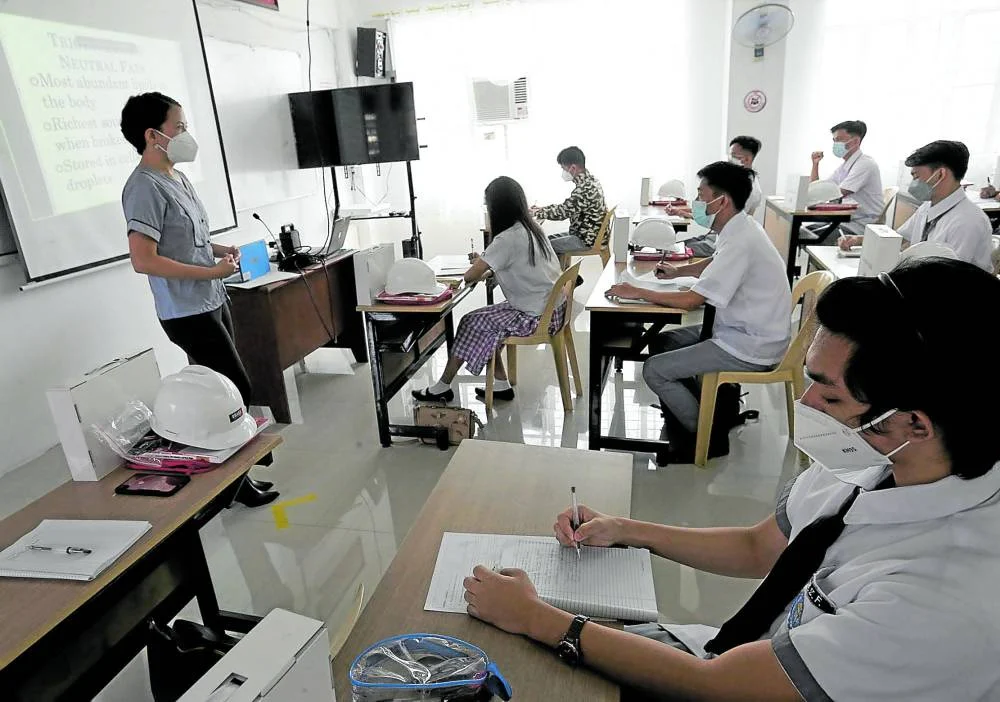Private schools send out SOS to gov’t: Raise student subsidy
Private education stakeholders are urging the government to review the voucher system and educational service contracting (ESC) program to sustain the operations of private schools in the country.
Doris Ferrer, executive director of the Private Education Assistance Committee (PEAC), pointed to the need to reexamine the amount of assistance and subsidies provided by the government during a press briefing on Wednesday.
Based on their study, Ferrer said that on average, private schools in Metro Manila participating in the ESC program charged tuition fees of about P35,000 but the government only provides a subsidy of around P13,000.
“Who is the parent who has an additional P22,000 to pay (the difference)? Better to go where (the tuition) is free,” she said, noting that the huge gap they need to fill might discourage parents from sending their kids to private schools.
In some schools outside the National Capital Region (NCR), Ferrer said that the combined tuition and miscellaneous fees amounted to P12,000 but the ESC grant was only P9,000, or P3,000 short.
Not enough
She said that there were about 1 million ESC grantees and about the same number covered by the voucher system, but state support was “not enough.”
The ESC, a partnership program between the Department of Education (DepEd) and certified private schools, provides tuition subsidies to “poor but deserving” junior high school students.
The project, complemented with private education assistance, is under Republic Act No. 8545, or the Expanded Government Assistance to Students and Teachers in Private Education (Gastpe) Act.
It is intended to decongest overcrowded public junior high schools.
Based on DepEd Order No. 17 in 2020, the amount of ESC grant for Grade 7 to Grade 9 students in Metro Manila schools was P11,000 per school year. For Grade 10 students, it is P10,000.
For schools outside NCR, the ESC grant for Grades 7 to 9 is P8,500 and P7,500 for Grade 10.
Under the senior high school (SHS) voucher system, Grade 10 students can enroll in any school of their choice and still receive a subsidy.
“The assistance helps to defray the cost of tuition … and the subsidy is not given to the learner as cash; DepEd instead pays directly to the SHS where the learner enrolls,” according to DepEd Order No. 32 in 2022.
Eligible students will receive a voucher amount per school year ranging from P8,750 up to P22,500.
Expansion of Gastpe
Ferrer said they had submitted their study on the voucher system and ESC program to DepEd. They expect that DepEd’s limited budget will be a financial constraint.
The Marcos administration had laid down its plan to strengthen the complementarity between public and private education systems, as indicated in the Philippine Development Plan 2023 to 2028.
Based on the economic roadmap, private investment in basic education would be encouraged to address the problems of overcrowding and stretching of public school resources.
Among the proposed legislative measures included in the development plan is the expansion of the Gastpe from kindergarten up to Grade 6.
Gastpe currently only provides assistance to underprivileged high school students and teachers.
Ferrer said the private sector had been appealing for support for grade school pupils.
“We also said we need to increase the teacher salary subsidy because the intention of mitigating migration from private to public is not achieved by the P18,000 teacher salary subsidy given annually to private school teachers participating in the Gastpe program,” she said.
Christopher Tan, country head of PHINMA Education Philippines, the educational arm of the PHINMA conglomerate which organized Wednesday’s briefing, lamented that policymakers in the past few years had “prejudice against the role of private business in providing public goods.”

